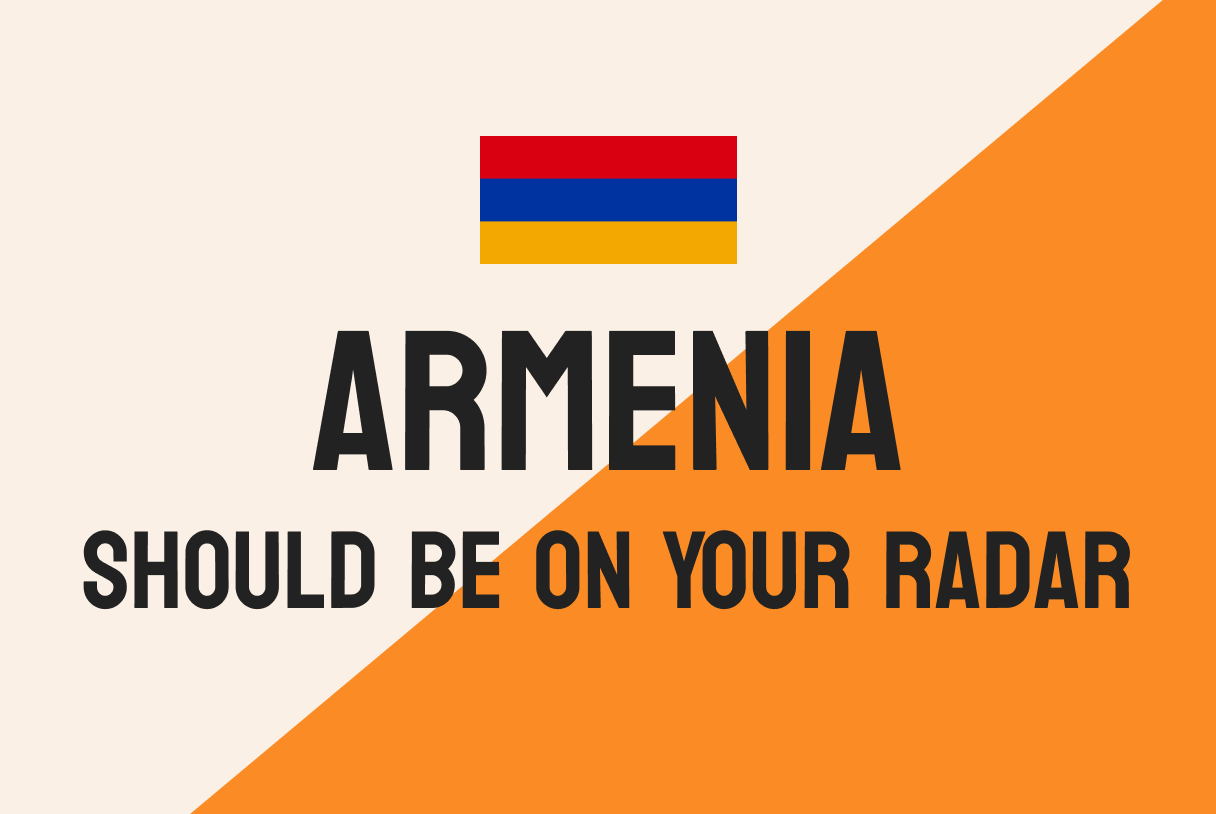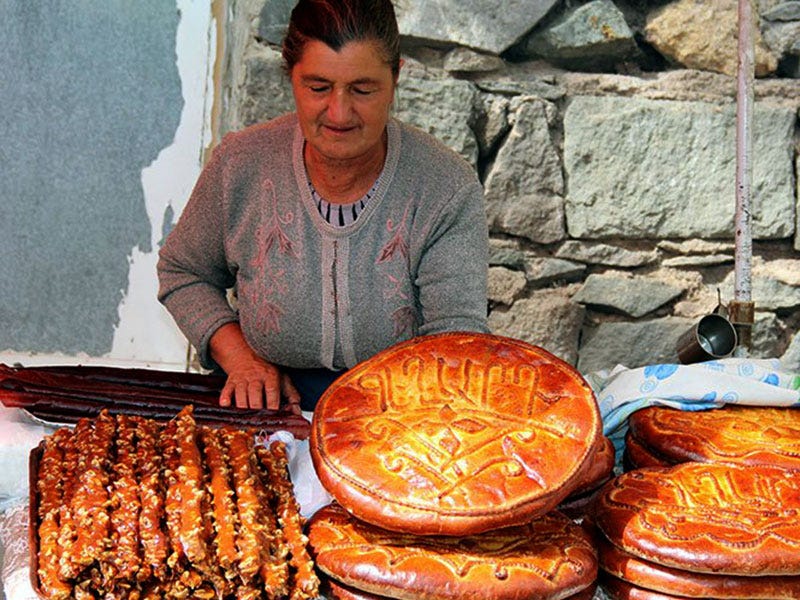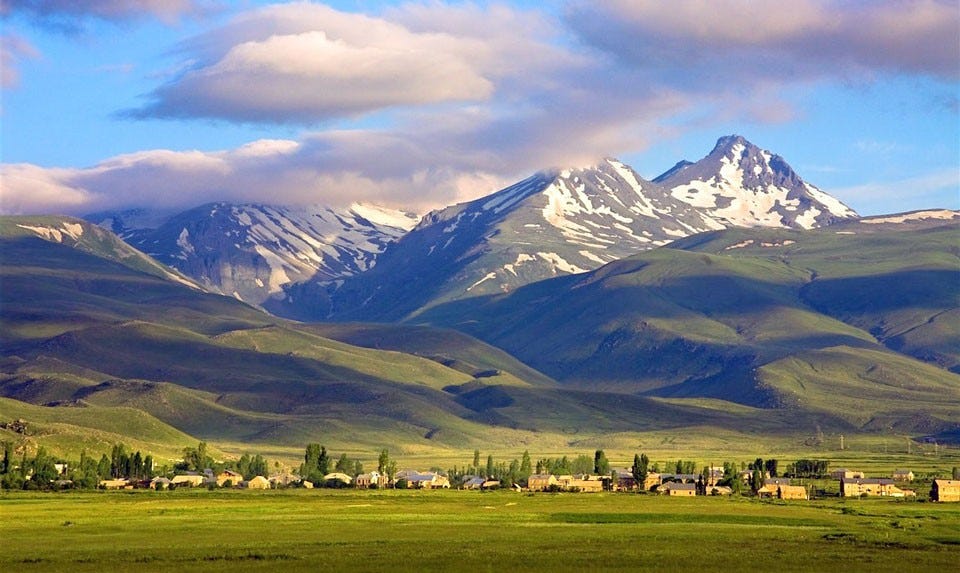Why More People Are Moving to Armenia in 2025
Why this small nation offers big value.
Armenia?
Not on most people’s list.
It is small, landlocked, and usually overshadowed by Georgia or Turkey. But the more I looked into it, the more it stood out, especially for people who live and work abroad.
This post covers:
How Armenia’s visa rules work
What it costs to live there
Culture and vibe
Weather and seasonal changes
Who Armenia is a good fit for (and for who its not)
If you are curious about underrated countries with low living costs, strong culture, and flexible visa rules, keep reading.
Visas & Residency
Armenia makes it easy to stay long.
One of the first things that stood out when I began researching Armenia was how relaxed their entry rules are. In a world where visa bureaucracy can ruin your plans, Armenia feels refreshingly straightforward.
Visa-free for up to 180 days
If you are from the EU, UK, US, Canada, Australia, or dozens of other countries, you can enter Armenia without a visa and stay for up to 180 days in a calendar year. No online forms. No embassy visits. Just stamp and go.
For comparison:
Georgia gives you 365 days.
Turkey allows 90 days out of 180.
Thailand allows 30 to 60 days, depending on your visa.
Armenia sits comfortably in the middle. Long enough to get a real feel for life there, short enough to avoid becoming a tax resident by accident.
Need more time?
There are two main options:
Apply for temporary residency
If you want to stay longer than six months, you can apply for a one-year Temporary Residence Permit, which is renewable. After three years, you can go permanent.Set up a local company
Many expats set up a local LLC (even if they are just freelancing or working online). This can serve as your legal anchor to apply for residency. Residency by company setup is popular because it’s fast, affordable, and doesn’t require employees or a physical office. I did the same in countries like Cyprus or UAE before, and love the setup.
E-visa option (if you are not visa-free)
If your passport is not on the visa-free list, Armenia offers an e-visa you can apply for online. It takes just a few minutes to fill out and is often approved in under a week.
E-visas come in two durations:
21 days
120 days
You can apply at: evisa.mfa.am
Don’t Fear The Immigration Officers
Armenian immigration is chill.
Border officers are friendly. There are no interrogations or trick questions. If you overstay by a few days, you might just pay a small fine.
Still, best not to make a habit of it, and this practise should not be repeated in countries like e.g. Thailand.
Tax Note: Armenia isn’t in CRS (yet)
If you open a local bank account or register a business, Armenia will not automatically share your data with other governments (as required under the Common Reporting Standard). This might change in the future, but for now, it adds an extra layer of privacy for international founders and freelancers.
Bottom line
Show up, stay up to 180 days, or build a simple base to stay longer. Easy as that.
Cost of Living
Armenia is not as cheap as Southeast Asia, but more affordable than most of Europe. For remote workers earning in dollars or euros, the cost of living in Yerevan (the capital) offers a stable, low-stress base.
Rent is (as usual) your biggest expense, and even that stays manageable. A one-bedroom apartment in central Yerevan costs around $450 to $600 a month, depending on condition and amenities. You can find cheaper options if you are willing to live a little outside the centre, or if you don’t mind something more basic. Utilities are affordable and internet is fast and cheap (around $15 to $20 a month for unlimited home fiber).
Groceries are low-cost and mostly local. Seasonal fruits and vegetables are everywhere, and prices stay reasonable year-round. A solo person can easily get by on $100 to $150 per month for groceries. Add a bit more if you buy imported goods often. Eating out is equally budget-friendly. A good local meal costs $5 or less, and dinner at a nice restaurant with drinks might run you $20 to $25 for two people.
Public transport is simple and cheap. The metro costs around 20 cents per ride, and taxis through apps like Yandex or GG rarely cost more than $3 to $4 within the city. The compact size of Yerevan also means you will probably walk more than you ride.
Co-working spaces exist, though they are not as common as in better-known nomad cities, such as Chiang Mai or Lisbon. You will find a few reliable spots in the city centre, with monthly memberships starting around $80. That said, many expats just work from home or cafés, where Wi-Fi is fast enough for video calls and uploads.
Healthcare is available, basic services are accessible, and prices are low. A visit to a doctor or dentist costs somewhere between $10 and $30, and private clinics are usually the first choice for expats. You can also get simple expat health insurance starting around $25 a month, though many travelers just pay out of pocket.
Put it all together, and most solo expats in Yerevan get by on $900 to $1,200 a month without cutting back too hard.
Culture & Vibe
People sit in cafés for hours, families stroll in the evenings, and older men play chess in the park. There is no rush.
The culture is direct. People do not fake friendliness, but they are helpful. Once you build trust, the warmth is real. That honesty runs through many aspects of daily life: business, friendship, small talk.
Language can be a hurdle. Armenian is unique and not widely spoken outside the region. Russian is still common. English is growing, especially among younger people, but it’s not a given. Still, people are usually willing to meet you halfway.
The food is worth a mention. Grilled meats, herbs, flatbreads, yogurt, apricots. It is delicious.
The expat scene is small, and meeting locals takes effort. But if you are not expecting instant belonging, you will eventually find your circles.
Safety & Stability
Armenia feels safe. People walk home late. Shops stay open. There’s not much visible crime, and petty theft is rare. If you spent time in cities where you always have to look over your shoulder, the difference is noticeable.
Yerevan in particular has a calm, local rhythm. People mind their own business. There’s no aggressive hustling, and street harassment is minimal.
Solo travelers, including women, generally report feeling safe here. As always, awareness matters. Police presence is low-key but available. Locals are more likely to help than to hassle.
That said, Armenia’s location comes with some geopolitical baggage.
The country has a long and sensitive history with its neighbours, particularly Azerbaijan and Turkey. There have been armed conflicts in recent years, especially over the Nagorno-Karabakh region.
While these tensions remain unresolved, they rarely affect daily life in Yerevan or most of Armenia. Protests happen, but violence against civilians is rare.
Weather & Geography
Armenia is a land of contrasts. It’s small (about the size of Belgium) but packed with mountains, valleys, lakes, and long views.
Yerevan, where most people stay, sits at about 1,000 meters above sea level. That elevation shapes the climate. Winters are cold but dry. Summers are hot, but the heat is usually bearable thanks to low humidity and cooler nights.
What to expect
Winter (Dec–Feb):
Cold and crisp. Daytime temperatures hover around 0°C (32°F), but it rarely drops far below. Snow is common but not extreme. The air is dry, which makes the cold easier to manage. Heating is solid in most apartments.Spring (Mar–May):
Starts off cool and rainy, then shifts into sunny and mild. Wildflowers appear, and the countryside turns green. It’s a good time for hiking without the summer heat.Summer (Jun–Aug):
Hot, dry, and sunny—often 30–35°C (86–95°F) in Yerevan. Shade and breeze make it manageable, and evenings are often pleasant. It’s also festival season, and city life feels more social.Autumn (Sep–Nov):
Arguably the best time to visit. Warm days, cool nights, and golden landscapes. Harvest season makes local markets full of fruit, and the light across the hills is incredible.
Air quality in Yerevan is decent, though not perfect. Like many post-Soviet cities, traffic and older cars can lead to smog on busy days, especially in summer.
Outside Yerevan, the scenery shifts quickly.
In under an hour, you can drive into the countryside and find:
Dilijan, a forested retreat often called “the Switzerland of Armenia”
Lake Sevan, a vast blue lake ringed by beaches and old churches
Tatev Monastery, perched on a cliff, reached by the longest cable car in the world
Mount Aragats, Armenia’s highest peak, accessible in summer
Nature here is raw and close. If you like your hikes steep and your views wide, you will not run out of places to explore.
Who Armenia Is For
Armenia is not the first choice for urban remote workers. There are not many co-working spaces, special visas, or curated nomad retreats. But if you want a quiet, affordable place to live and work, it can work for you.
Armenia might be right for you if:
You’re a solo builder or freelancer who doesn’t need a big scene to stay focused
You’re in a phase where you want quiet, stability, and good food without distractions
You value low living costs and long stays without paperwork
You’re interested in regional travel (Georgia, Turkey) but want a softer landing
You’re drawn to places with strong cultural identity and deep roots
This is a good place to write a book, launch a small business, or reset between big phases.
At the same time, Armenia has its limits. The social scene is small, and finding “your people” might take longer. English is not spoken everywhere. There is not much of a startup culture or remote work infrastructure beyond a few co-working hubs.
You might struggle here if:
You need a big community to feel settled
You want lots of nightlife, workshops, or dating options
You’re used to ultra-fast delivery services, modern gyms, or highly international cities
You get bored easily when things are quiet
It’s worth comparing Armenia to nearby options.
Georgia is more open socially, with a bigger nomad scene and even more relaxed visa rules.
Turkey offers more variety and coastlines, but comes with a heavier bureaucracy and political complexity.
In a Nutshell
Armenia offers calm, routine, and a strong sense of place. Daily life feels stable. Costs stay reasonable. The culture is deep, the seasons are real, and the pace supports focus.
It is a place where you can think clearly, live simply, and work without noise. For many people, that’s enough.
If you are exploring new options, Armenia is worth adding to the list.
If you liked this, you might also like …
Thanks for reading and see you soon! ❤️
If you’re enjoying Digital Citizen, tap ❤️ and 🔄 at the top to help more curious minds find their way here. It means a lot.









